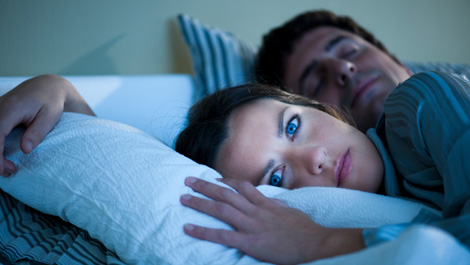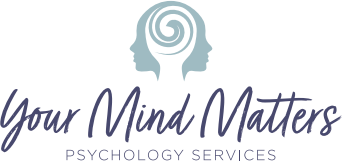
Sleep is an important part of our well-being. Just ask a shift worker, a new mother, emergency service employees, a student studying for an exam, people who travel overseas for work… being tired and exhausted doesn’t feel good.
Sleep can affect:
- How we feel
- How we meet the demands of the day
- How well we manage stress
- Our body’s ability to rest and recover
- Our ability to think, plan, concentrate, and focus
- Our alertness and energy levels
What can impact on sleep?
Those experiencing anxiety or/and depression may find sleeping difficult, or perhaps the quality of sleep has changed. Racing thoughts and finding it hard to relax are often reported by people with anxiety.
Some health conditions can impact on sleep quality, such as sleep apnoea and snoring. People with chronic pain may also find sleep difficult. Pregnant women often experience difficulty with remaining asleep.
Lifestyle factors can also impact on sleep and sleep quality by effecting the body’s natural wake and sleep cycles, such as using electronic devises (including gaming) before bed, eating shortly before bedtime, consuming alcohol and caffeine, and exercising late in the evening.
Jet lag occurs when we travel to different time zones. The body generally adjusts but can take a few days.
What is your current bedtime routine? What could be impacting on your sleep?
How much sleep do I need?
Everyone needs slightly different amount of sleep. Children and adolescents often need more sleep than adults. Healthy adults need on average 8 hours of sleep, but some people can be alert with 6 hours of sleep while others need 10 hours.
Working out how much sleep you need to feel good, alert and focused is a good place to start.
How to get more sleep
Make sleep a priority. Just as a healthy diet and being active is important, so too is sleep. Some tips to help with getting to sleep and staying asleep include:
- Making bed time a priority- try to set a consistent bed time every night
- Wake up the same time every morning- this helps your body to get in a good sleep cycle.
- Get in touch with your body’s sleepy signs- ignoring when you are feeling tired may mean you go to sleep when your body isn’t tired.
- Don’t use electronic devises within 1-2 hours of bedtime. If you need to use them, look at removing the blue light (some phones and devices have this function, or you may need to install an application)
- Limit alcohol consumption within 2 hours of bedtime. Alcohol may relax you but your body has to work hard to metabolize it and often causes people to wake up and not fall into deep sleep.
- Create an inviting sleep environment: not too warm or cold, dark, no or little noise, and a place that you feel comfortable to sleep in.
- Try not to be highly active within the two-four hours before bed time so your body can relax
- Dim lights and do more relaxing activities in the evening – limit brain stimulation
- Drink a relaxing herbal tea or warm milk
- Napping isn’t usually recommended as it can effect feeling tired in the evening. However, for new mothers, napping is encouraged as some sleep is better than none. Short sleeps are also encouraged if you feel fatigued while driving.
Are there any changes you could make to improve your sleep?
What can I do if I find relaxing and falling asleep difficult?
A range of factors can impact on being able to relax, which is required to be able to fall asleep. If you have been finding it difficult to fall asleep, it is normal to feel anxious and not look forward to bedtime. Creating a soothing bedtime routine can be helpful. Some additional tips can include:
- Doing some guided mindfulness exercises in beds. There are a number of apps that can be useful, such as Smiling Mind and Headspace. There are also many guided mindfulness tracks and relaxation music on YouTube and Spotify. Have some fun exploring and trying different tracks you like.
- Create a bedtime routine that is calming and one you look forward to. For example, have a bath with some relaxing essential oils, such as lavender. Visit a good health food store for advice. Many emergency service workers on shift work have very warm showers just before bed to encourage the body to cool down which helps to drift off to sleep.
- If after 20 mins you can’t fall asleep, get out of bed and do something quiet and calming, in a dark/dim room and then try again when you feel sleepy. Or, listen to the guided mindfulness track or relaxing music again.
- Keep a notepad or journal near your bed and write worries or things you have to remember to do the next day. Writing them down helps to stop the thoughts from running through your mind, allowing you to relax.
Should I see my doctor?
It is always a good idea to speak to you doctor about the difficulties you are experiencing with falling and staying asleep, and if you are waking not feeling well rested and still very tired. Some medications cause sleep to be disturbed. There may also be a biological reason that can be managed. Doctors may prescribed medication to assist with sleep, such as Melatonin that can help with helping the body to get back into a good wake/sleep cycle. Sleeping tablets may be prescribed for short term assistance, but long term use is not usually advised.
How can your psychologist help?
A thorough assessment will be conducted and you may be asked to keep a sleep diary for a week. Using a range of techniques, such as CBT and ACT, your psychologist can assist with developing strategies you can use to help with relaxation and sleepiness, managing anxious thoughts and developing a bed time routine that suits you.
Want to talk to us about getting a better night's sleep?
Call us on (03) 9809-5947, or send us an email: admin@yourmindmatters.net.au
| This post was written by Anita Missiha, Psychologist.
Anita recently completed her post graduated studies in Psychology after working in the training and education industry. Anita has experience working with students in school settings, and also works with adults. |
